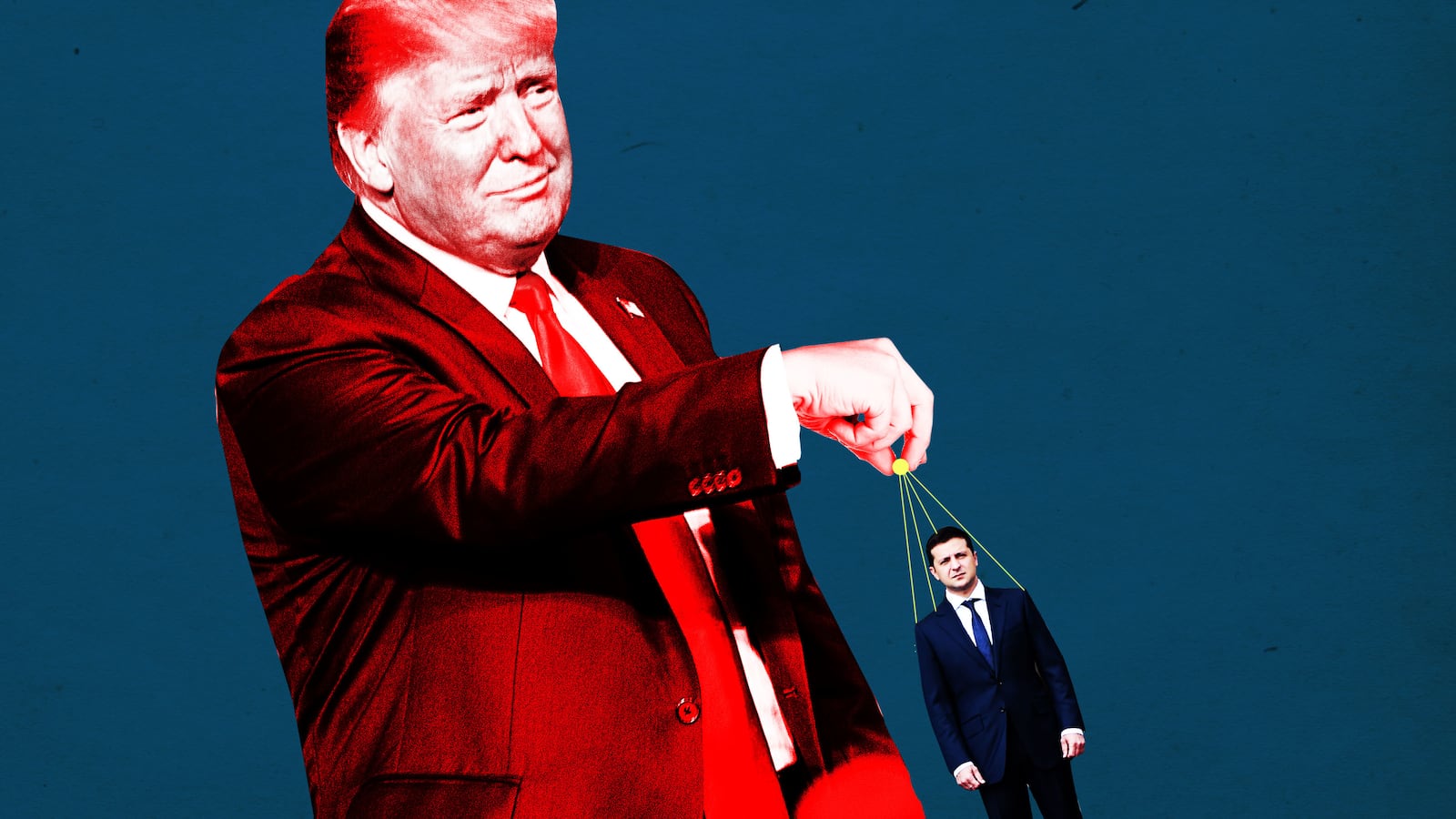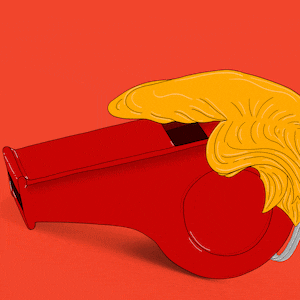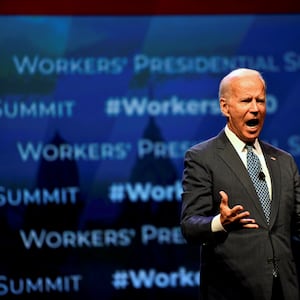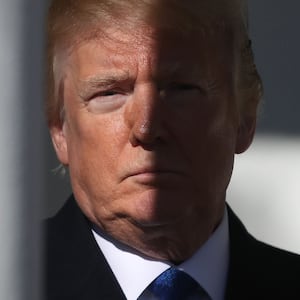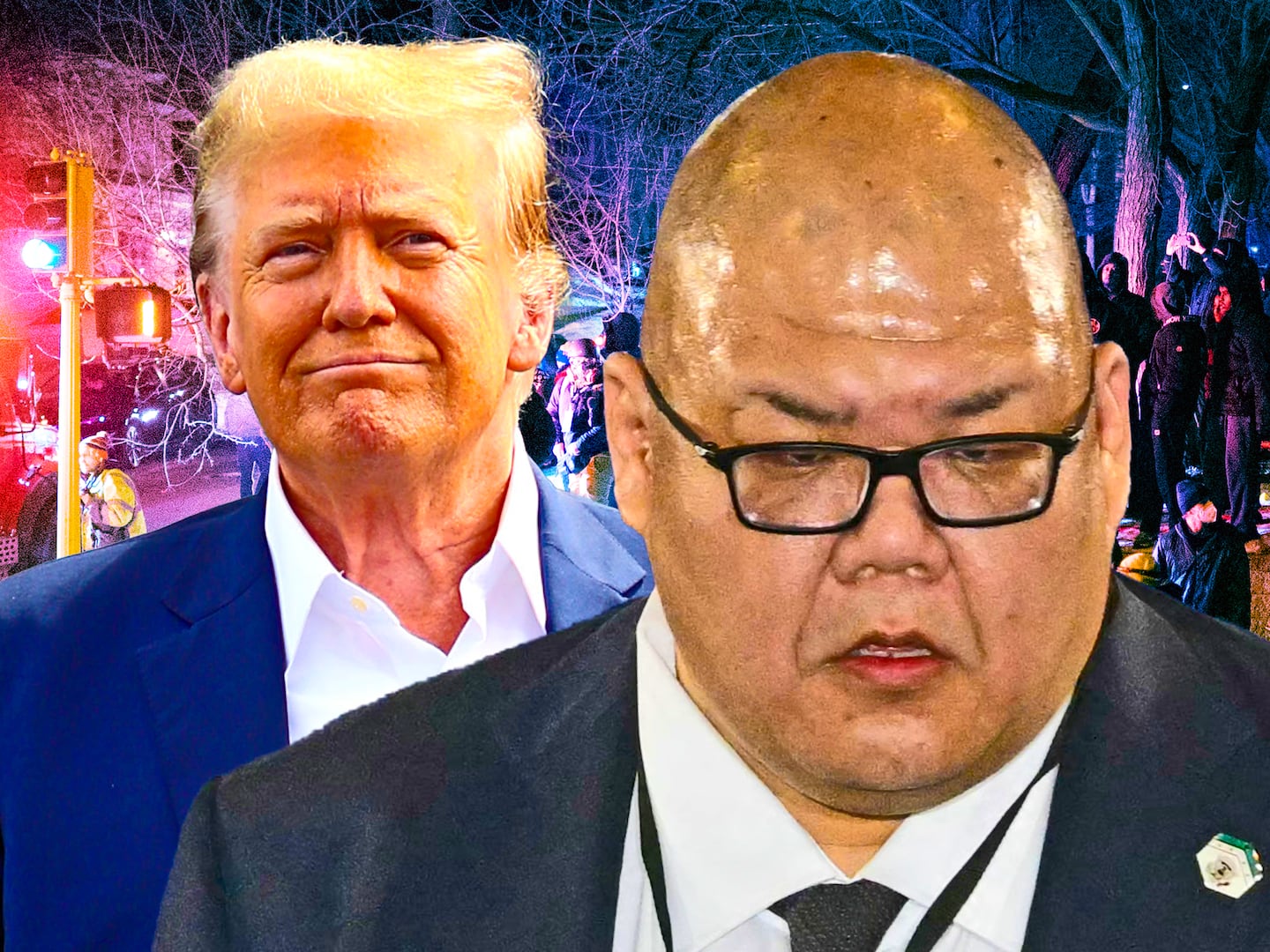If the latest allegations about President Donald Trump’s conversations with the leader of Ukraine are true, his conduct may constitute a garden-variety public corruption crime: extortion and bribery.
The Washington Post has reported that the subject of an intelligence community whistleblower’s complaint relates to a “promise” made by Trump in a conversation with the president of Ukraine, Volodymyr Zelensky. Further reporting indicates that the conversation amounted to a threat to withhold $250 million in military aid to Ukraine unless Zelensky investigates the family of Joe Biden, who is of course running to unseat Trump in 2020.
And The Wall Street Journal has reported that during a single phone call in July, Trump made “about eight” demands for Zelensky to work with his lawyer, Rudolph Giuliani, to investigate Biden, though Trump did not mention the aid during the call. The Post reported that while there was no explicit quid pro quo during the call, that conversation is part of a broader set of facts included in the whistleblower complaint. According to the Post, a “Ukrainian official this year said he had no evidence of wrongdoing by Mr. Biden or his son, Hunter Biden.”
The facts here still need to be fleshed out, but the gist is easy enough to understand. Trump allegedly has demanded that Ukraine launch an investigation into Biden if it wants to receive the military aid that has already been promised. If true, this conduct would be a classic abuse of power that is considered criminal when committed by a public official.
The federal bribery statute makes it a crime for a public official to demand anything of value in exchange for performing an official act. A statute known as the Hobbs Act defines extortion as obtaining property from another, with his consent, under color of official right. “Property” is defined to mean anything of value, tangible or intangible. The essence of both crimes is a demand by a public official to obtain something for himself to which he is not entitled in exchange for performing an official act of his office.
When I served as U.S. Attorney in Detroit, I supervised the prosecution of the city’s former mayor Kwame Kilpatrick and some of his associates in a public corruption scheme that included extortion. Kilpatrick was convicted of using his office as mayor to extort municipal contractors by demanding that they include his friend Bobby Ferguson in public contracts and share with Ferguson a portion of the revenue. If contractors wanted the multi-million dollar public works contracts, they were required to pay off the mayor’s friend. Ferguson’s share of these contracts totaled $83 million. These types of schemes are sometimes referred to as “pay-to-play.”
Here, if the reporting is correct, Trump may be similarly committing bribery and extortion by using the power of his office to demand a thing of value, dirt on Biden, in exchange for an official act, the provision of $250 million in military aid. This is precisely the kind of old-fashioned corruption scheme that the bribery and extortion statutes were designed to punish.
Instead of requiring 400 pages of factual recitations and legal analysis as the Mueller investigation did, a summary of these corruption allegations would be fairly simple: Trump used the power of his office to threaten to withhold a benefit in exchange for a thing of value in violation of federal law. The nature of the purported extortion—using his position as president to make demands of a foreign leader to help him win an election—only makes it more egregious.
While we have all learned that the Department of Justice takes the position that a sitting president cannot be indicted, bribery is specifically included in the Constitution as an impeachable offense. It is the type of abuse of power that the framers envisioned when they included in the Constitution a remedy to remove the president from office when he commits high crimes or misdemeanors. By enacting the bribery and extortion statutes, Congress has proclaimed that this type of conduct is not behavior that we should tolerate in public officials generally. We should no more tolerate this abuse of power when the president does it.

